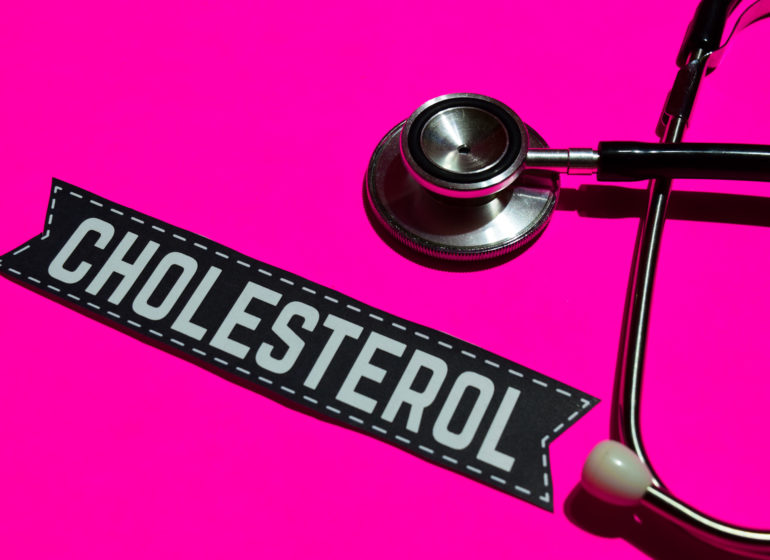Those with high cholesterol are at risk for problems related to both heart disease and stroke. One of the most important things an individual can do with regard to heart health is to manage their cholesterol levels as successfully as possible. While part of that battle is waged at the dinner table, there are drugs available today that can help patients manage cholesterol levels successfully.
Some Options
While the basic goal of cholesterol medications are the same from one to the next – to improve your cholesterol levels and make the changes of a life-threatening heart event less likely, these drugs vary in the way they approach the matter. One common category of cholesterol drugs is statins, which comes under a variety of brand names. These drugs are prescribed by your doctor and are usually the first stop in terms of medical intervention in a case of high cholesterol. When statins are ineffective in lowering cholesterol successfully, other medications may be employed. Depending on the patient and their specific needs, multiple medications may be employed simultaneously.
Beyond statins, another common category of cholesterol medication is PCSK9 inhibitors such as Praluent and Repatha. These two options are used for the same purpose, although made by different companies. The goal of these drugs is to reduce LDL cholesterol, and while they can be rather costly compared to other medications, they do have the potential to provide excellent results for some patients.
The First Step
As you might imagine, the first step toward using statins or PCSK9 inhibitors is to speak with your cardiologist. Every individual is unique, and you will need to have your personal health closely examined in order for an appropriate plan to be created. Before any medication is prescribed, your doctor will evaluate your overall condition, order any tests that may be required, etc. Getting the desired results from cholesterol medication means doing plenty of planning to match up the right medication and dose with the right patient.
One of the best things you can do as a patient is to be open-minded going into the process. Some patients do research online and think they already know which medications will be best for them, but that is not the right way to approach the situation. You are always welcomed, and encouraged, to ask questions of your doctor, but don’t assume you know the answers before even having your first appointment.
Beyond Medication
The developments in cholesterol managing medications have been tremendous in recent years and have improved the long-term outlook for many patients. With that said, there are things that those with high cholesterol can do to take matters into their own hands, at least to a certain degree. For one thing, a heart-healthy diet is a great step in the right direction. There are specific foods that one can eat – and others that should be avoided – which may be able to help move cholesterol in the right direction. It’s never easy to make major dietary changes, but that might be what is required to regain control over your heart health moving forward.
Exercise is another important piece of the puzzle. This is one that intimidates some people, especially those without a background in sports or physical activity. Fortunately, you don’t have to be an Olympic-caliber athlete to perform the kinds of exercise that can benefit your heart. Even something as basic as a brisk walk can do your body a lot of good, and you might find that you enjoy it, as well. Of course, there may be even more benefits associated with more vigorous forms of exercise, if you so choose, but even moderate exercise is notably better than nothing at all.
As is always the case, make sure to discuss lifestyle changes with your doctor, both from a dietary and fitness perspective. Don’t start a new workout routine without first talking to your doctor about it, especially if you already have an existing heart condition. Likewise, making big changes to your diet can be helpful, but that’s something you’ll want to go over with your doctor to make sure you are doing it the right way.
Even with improvements to your lifestyle from a food and fitness perspective, you still may need the help of cholesterol medications to keep your numbers in a safe and healthy range. This is again where we see just how important it is to treat each case differently. One person might be able to completely control their cholesterol with a good diet and regular exercise, while another individual may follow the same routine and not see the same results. Whatever the right formula happens to be for your needs, you and your doctor will have to work together to uncover it. Ultimately, the goal is to keep your cholesterol down and your heart as healthy as possible.
Whether you have questions about managing your cholesterol or anything else related to your heart, we invite you to contact Beverly Hills Cardiovascular at your convenience. Dr. David Filsoof and his team are proud to offer patients a number of different services, including Heart Disease Screening, Stress Echocardiography, Nuclear Stress Test, and much more. To schedule your first appointment, or to ask any questions you may have, please contact us right away. Thank you for stopping by.
